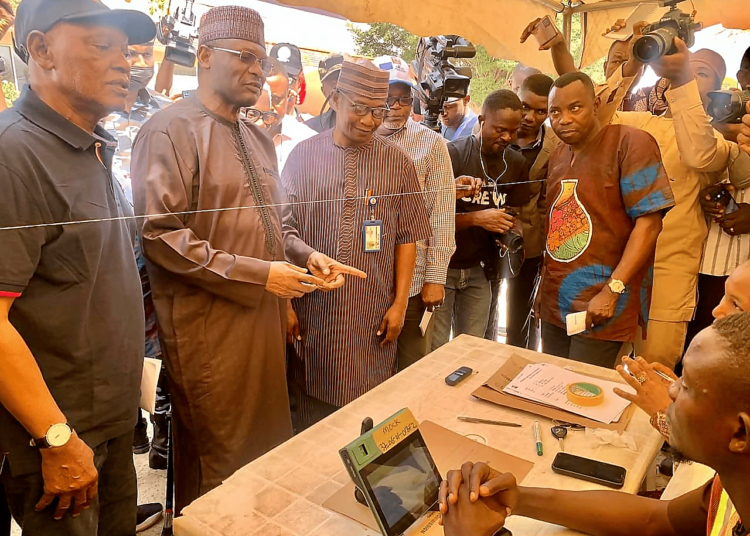Social media is awash with accounts of voters in different parts of the country alleging that polling unit results of the February 25 presidential election that have been uploaded to the result viewing portal of the Independent National Electoral Commission (INEC) are different from what was announced in the polling units where they voted. Some voters have pictures and videos of what transpired at their respective polling units and are sharing them on social media. There are more than 176,000 polling units in the country. Verifying each of these claims would prove a Herculean task.
By this trend of sharing, individual experiences on social media have exposed the growing mistrust towards the electoral umpire and the credibility of the election. Added to that is the perceived lack of transparency in the entire process. INEC, the body charged with the responsibility of conducting the election, for several days failed to upload results from polling units on to the portal.
By the time it decided to upload, however, the damage had already been done with opposition parties accusing the commission of not being transparent despite months of assurances that the Bimodal Voter Accreditation System (BVAS), which was meant to be the means of sending election result to INEC’s server would work.
The People’s Democratic Party (PDP), went as far as demanding that the results from Ekiti State be discarded, alleging over- voting and fraud while collation was going on. His actions have been compared to the 2015 incident when a former minister under Goodluck Jonathan, Peter Orubebe, tried to disrupt proceedings at the Collation Centre where the results of the 2015 presidential election were being announced. The difference this time round, is that many citizens, particularly supporters of Peter Obi, the presidential candidate of the Labour Party, genuinely believe that the election results, so far announced, do not reflect what happened at the polling stations. And they are not the only ones.
Cancel 2023 Elections, Organise Fresh One, NNPP Tells INEC
Former President Olusegun Obasanjo has gone as far as alleging that INEC officials have been compromised and called for the cancellation of the results in places where there is noticeable discrepancy from what was recorded by the BVAS. He said, “It is no secret that INEC officials, at operational level, have been allegedly compromised to make what should have worked not to work and to revert to manual transmission of results which is manipulated and the results doctored. The Chairman of INEC may claim ignorance but he cannot fold his hands and do nothing when he knows that election process has been corrupted and most of the results that are brought outside BVAS and Server are not true reflection of the will of Nigerians who have made their individual choice”.
And it happens, for the first time in the country’s recent history, the electoral umpire or the returning officer at any election, now has the powers to cancel an election courtesy of the 2022 Electoral Act. It could be a returning officer at a polling unit, ward, local government, state or national level. Previously, the powers to cancel an election resided strictly in the hands of the courts, the Supreme Court in most cases. But not anymore. And it is already proving to be a controversial law in this new Electoral Act.
A case in point is the cancellation of the results from one of the area councils of the Federal Capital Territory (FCT) in the senatorial race. In the view of this newspaper, cancelling the results of an election is not a decision that should be taken lightly. It is turning out to be too much powers in the hands of returning officers. These powers should have remained with the highest court.
Though the minister of Information, Lai Mohammed, was speaking from a partisan position, we agree with him that the suggestion made by President Obasanjo in which he called for the cancellation of the presidential election result could lead to anarchy.
Just a few weeks ago, political contestants and their surrogates, both in the ruling party and the opposition were spreading conspiracy theories about a plot to scuttle the election and foist an interim government or even the military on the country. The cancellation of the election would take the nation one step closer to this reality. And as the minister said, anyone who is aggrieved would be better off following “the stipulated legal process put in place to adjudicate electoral disputes, instead of threatening fire and conjuring apocalypse.”
In our opinion, until the legal processes, if any, were concluded, it would amount to self help for any one, no matter how highly placed, to begin to suggest, even if remotely, the truncation of an ongoing process. The country has enough headaches already. The system should be allowed to run its full course.





